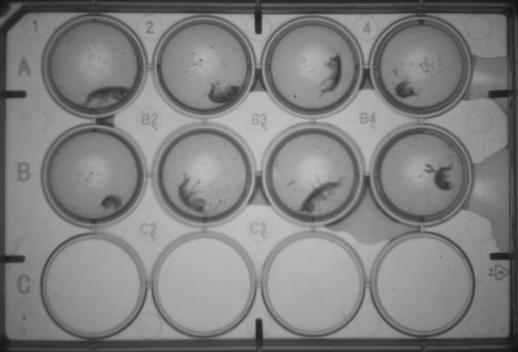
Credit: University of Portsmouth
Scientists from the University of Portsmouth are helping to develop new technology that will aid our understanding of drug and alcohol addiction in humans and the impact of drug pollution on wildlife.
Portsmouth scientists have teamed up with the technology firm Zantiks to help design and produce bespoke monitoring equipment.
One of the scientists involved in the collaboration is Professor Alex Ford from the University’s Institute of Marine Sciences. He said: “The effects of pollution on behaviour is currently a growing area of concern amongst environmental scientists, especially as we are starting to discover prescribed and illicit drugs accumulated in our wildlife. Some of these drugs were explicitly designed to alter behaviour in humans so it is important that we develop the methods to understand there impacts on our ecosystems.
“Working with the companies that develop the technologies enables us to have input into the bespoke design of this equipment which we hope one day might safeguard the quality of our ecosystems”
One of the other scientists involved is Dr Matt Parker, a behavioural neuroscientist from the School of Pharmacy and Biomedical Science, with 10 years’ experience of studying drug and alcohol addiction. He said: “Drug and alcohol addiction are a major health concern worldwide, and notoriously difficult to treat. Several research groups, including my own, have been studying the biology of addiction using laboratory animals, in particular, zebrafish, to understand the underlying processes. Being able to effectively monitor the fish in a controlled environment allows us to track their responses to drugs, and map this to brain regions that we think are altered in addicted people.
“It has been extremely useful to work with Zantiks on the development of their behavioural monitoring equipment, and has transformed our ability to study addiction in fish. Moving forward, we are confident that this enhanced capability will expedite the day when we understand why people get addicted to drugs and alcohol, and find effective cures and interventions to help them.”
The director of Zantiks, Dr Bill Budenberg said: “We are excited by this opportunity for Zantiks to work with Professor Alex Ford and Dr Matt Parker, from the University of Portsmouth, whose knowledge and expertise will help us ensure our products are optimised to enable the scientific community gain better insight into the effects of drugs and pollution on behaviour.”
###
Media Contact
Glenn Harris
[email protected]
Original Source
https:/




